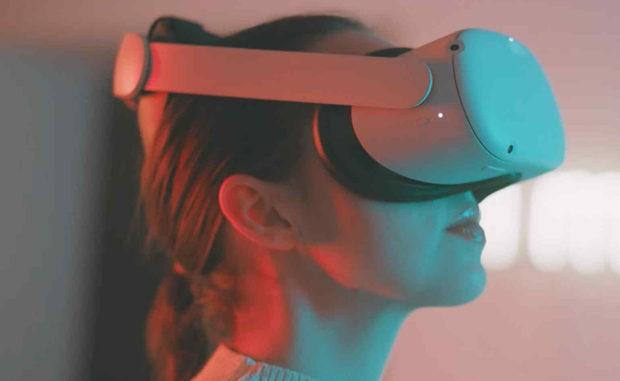

4 Ways Wellstar Health Is Funding Collaborative Innovation

At Wellstar Health System in Marietta, Georgia, palliative care practitioners have been using a virtual reality (VR) platform to simulate the most difficult conversations any clinician may have to deliver — communicating a life-altering diagnosis.
Immersed in a virtual setting, clinicians speak with a woman named Alice about the serious progression of her cancer and to help her navigate next steps. The training uses live actors rather than avatars or animation, creating a powerful and emotional experience like those palliative care professionals face almost every day.
The platform allows caregivers to practice these crucial conversations in a safe space while maintaining the emotions and intensity that make this challenging in the care environment, says Anjali Grandhige, Wellstar’s palliative medicine director.
Investing in Collaborative Innovation
The Compassionate Conversations training came about through a collaboration between Wellstar Health and VR communications technology startup Moth+Flame. Catalyst by Wellstar, the innovation arm of Wellstar Health System, helped fund the startup.
Catalyst by Wellstar is a $100 million venture fund launched by the parent health system in May. It aims to make more than 50 investments — from pre-seed to Series A rounds — over the next five years. Investments will target companies addressing issues like customer experience, data analytics and security, digital health, workforce, supply chain, logistics and sustainability.
The Moth+Flame investment illustrates Wellstar’s focus on being more than an innovation financier. The health system, which provides care for 1.6 million Georgians annually and provided $1.2 billion in uncompensated care last year, works shoulder to shoulder with many of the startups it helps to fund.
Bringing Robotics to Surgical Instrument Sterilization
Catalyst by Wellstar’s investment this month in RIF Robotics is another example of the venture fund’s strategic partnership with a company to which it provides seed money. The fund’s investment with the tech startup focused on improving the sterile processing of surgical instruments with the aid of robots and includes a pilot with RIF to further refine its technology with feedback from Wellstar staff on the front lines of sterile processing.
More than 51 million surgeries are performed in the United States every year with each one requiring between three and 30 instrument trays. Mistakes in sterile processing can lead to unsafe outcomes for patients and medical staff with estimated costs of $25 billion in operating room delays.
By year-end, RIF aims to achieve the automated assembly of a basic surgical tray before launching the robots for broad commercialization. The pilot with Wellstar will employ artificial intelligence (AI), computer vision and robotics to automate the sterilization of instruments used in hospitals. The technology is designed to improve patient and hospital team member safety while enhancing operational efficiency.
4 Ways Catalyst by Wellstar Is Advancing Innovation
The first four investments made by Catalyst by Wellstar target ways to improve care delivery, safety, decontamination of facilities and innovation tracking.
- Marani Health developed an AI-powered fetal monitoring system designed to deliver a better pregnancy experience for patients and their care teams.
- 410 Medical created a hand-operated infuser device that enables clinicians to deliver blood or fluids rapidly to critically ill patients requiring volume resuscitation.
- Vyv, an antimicrobial tech startup, developed an ultraviolet-free light that kills viruses like SARS-CoV-2, bacteria, fungi, yeast, mold, mildew and odors.
- MetaCX launched a software platform that enables Catalyst to drive collaboration across Wellstar’s nine hospitals and five health parks to collect and understand distributed data, align stakeholders on shared strategic plans and monitor progress toward desired outcomes. The company’s scope of work with Catalyst ranges from sustainability issues to employee wellness and digital transformation.



